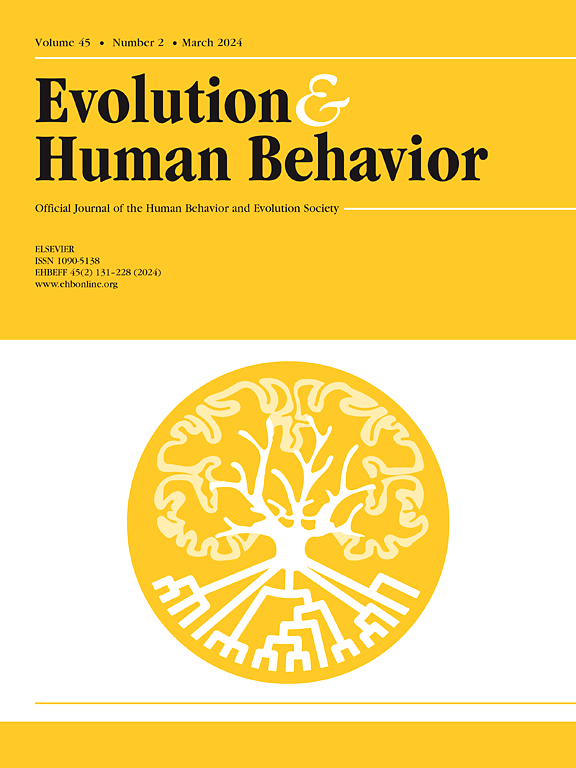Trustworthiness: an adaptationist account
IF 3.2
1区 心理学
Q1 BEHAVIORAL SCIENCES
引用次数: 0
Abstract
The concept of trustworthiness plays a role in the formation, maintenance, and dissolution of friendships, marriages, and cooperative relationships from small to large scales. Here, we analyze trustworthiness under the assumption that such concepts evolved to guide action adaptively. Intuition and research suggest that actors trust targets who have not engaged in betrayals. However, this perspective fails to capture certain real-world behaviors (e.g., when two people cheating on their spouses enter a relationship with each other and expect mutual fidelity). Evolutionary task analysis suggests that trustworthiness is structured to help actors address challenges of extending trust, where actors may gain or lose from doing so. In six experiments with American adults (N = 1718), we test the hypothesis that trustworthiness tracks not only (i) whether targets refrain from betraying trust when given opportunities, but also (ii) the impact of betrayal on the actor. Data generally support this hypothesis across relationships (friendships, romantic, professional): Actors deem non-betrayers more trustworthy than betrayers, but also deem betrayers more trustworthy when betrayals benefit actors. Trustworthiness may incline actors to trust to those who refrain from betraying others—a potent signal of reluctance to betray oneself—while also favoring those who betray others if it serves oneself.
可信赖性:一个适应主义的解释
信任的概念在友谊、婚姻和合作关系的形成、维持和解体中发挥着重要作用,从小到大。在这里,我们分析可信度的假设下,这些概念演变指导行动自适应。直觉和研究表明,演员信任那些没有背叛过的目标。然而,这种观点未能捕捉到某些现实世界的行为(例如,当两个欺骗配偶的人进入一段关系并期望相互忠诚时)。进化任务分析表明,可信度的结构是为了帮助行为者应对扩展信任的挑战,行为者可能因此获得或失去信任。在对美国成年人(N = 1718)进行的六个实验中,我们验证了可信度不仅追踪(i)目标在获得机会时是否不会背叛信任,而且还追踪(ii)背叛对行为者的影响。数据在各种关系(友谊、爱情、职业)中普遍支持这一假设:演员认为非背叛者比背叛者更值得信任,但当背叛者对演员有利时,他们也认为背叛者更值得信任。值得信赖可能会让演员信任那些不愿背叛他人的人——这是一个不愿背叛自己的有力信号——同时也会偏爱那些为了自己的利益而背叛他人的人。
本文章由计算机程序翻译,如有差异,请以英文原文为准。
求助全文
约1分钟内获得全文
求助全文
来源期刊

Evolution and Human Behavior
生物-行为科学
CiteScore
8.30
自引率
9.80%
发文量
62
审稿时长
82 days
期刊介绍:
Evolution and Human Behavior is an interdisciplinary journal, presenting research reports and theory in which evolutionary perspectives are brought to bear on the study of human behavior. It is primarily a scientific journal, but submissions from scholars in the humanities are also encouraged. Papers reporting on theoretical and empirical work on other species will be welcome if their relevance to the human animal is apparent.
 求助内容:
求助内容: 应助结果提醒方式:
应助结果提醒方式:


